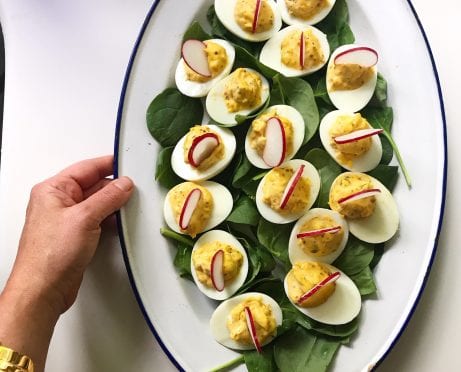
Jeff Encke
Would you pay $10 for a gallon of milk? How about $20 for a 12-pack of bottled water? $43 for a frozen turkey?
These are real food prices in Barrow, Alaska. It’s a small community of about 4,500 people located at the northernmost tip of Alaska, where all goods must be flown in on cargo airplanes. I used to live in the middle of the state in Fairbanks. Grocery prices there were a bit better, but not by much.
I was looking for ways to lower my grocery bill when I came across an episode of Extreme Couponing on TV. I couldn’t believe it. Those people walked away with a carload of groceries and saved up to 100 percent on their bills!
Visions of glorious, well-organized stockpiles and hundreds of extra dollars saved each month began dancing through my head. I knew I had to try my hand at extreme couponing, too.
Start Managing Your Finances — Download This Personal Finance App >>
How Does Extreme Couponing Work? My Strategy
I began by collecting hordes of coupons from anywhere and everywhere. We didn’t have a newspaper subscription, so each week I went out and bought the Sunday paper, along with a few magazines that were known to be packed with coupons. I asked my mom to send me her coupon inserts, too. I also searched online for coupons to print out. And I even wrote to a handful of companies directly asking for coupons.
After that, I joined an online coupon-trading website Hot Coupon World. I was soon introduced to coupon trains. It’s a phenomenon in which a pile of coupons gets mailed around to people in the “train,” and each person can pick out whichever coupons they want and replace them with similar ones.
After I collected all of my coupons, I carefully organized and arranged them in a binder, the likes of which would have made any little boy who collects baseball cards jealous. I brought it with me to the grocery store each week. When I shopped, I walked down all the aisles and searched out every nook and cranny for a product that I had a coupon for.
My strategy was simple: If I had a coupon for it, I bought it. Never mind whether or not it was something I'd actually use.
I was trying to emulate the extreme couponers I saw on TV and focus on percentage saved. But in the process, I became blinded by the fact that I was actually spending way more than I was before.
Is Extreme Couponing Worth It? The Pitfalls
I tried to rationalize my strategy by telling myself that I was just building up my stockpile. Eventually, I reasoned, it would taper off as my stockpile reached full capacity. With each passing week of $300-plus grocery bills, though, my husband became increasingly skeptical.
Finally, he sat me down and told me that this whole thing was out of control. It needed to stop. Luckily, the adrenaline rush of using all those coupons had started to wear off by that point, as I saw our bank account starting to dwindle.
I’m not the only one who spiraled out of control with extreme couponing. Coupon-conscious shoppers spend 24 percent more than noncoupon shoppers, according to Access Development.
How and Why We Fall Into the Coupon Trap
Jennifer Dunkle, a financial therapist, has a simple explanation for how it can get out of hand so quickly:
“Rather than examining each situation to see if using a coupon actually makes financial sense, some people decide, ‘I will always use the most coupons I possibly can, and that automatically means that I will be saving money,’” she says. “I do think that this line of thinking can become somewhat addictive. People tell themselves that they are ‘successful’ financially because of all the money that they are supposedly saving.”
This was certainly the case with me. I was faced with high grocery bills and poor financial management skills (at that time, anyway). Plus, I thought that coupons would literally be my ticket to saving more money. It turns out I was wrong.
I still believe that coupons can be a great way to save money. Even now, I’m trying to begin using coupons again. But this time I’m not going in blind. I’m researching specific strategies and techniques to save money, and coupons are only a part of that equation.
Tips for Effective Couponing
- Plan meals before you go to the store, make a grocery list, and stick to it.
- Don’t focus on percentage saved. Instead, focus on paying less. Sometimes that means not buying something at all, even if you have a coupon.
- Maximize your savings by using coupons for products that are already on sale.
- Always compare store-brand prices to those of brand-name products with coupons.
- Only buy items you will truly use.








![[VIDEO] Frugality Is Not Financial Literacy](https://centsai.com/wp-content/uploads/2017/09/frugality-is-not-financial-literacy-Eric-Strausman-461x372.jpg)

